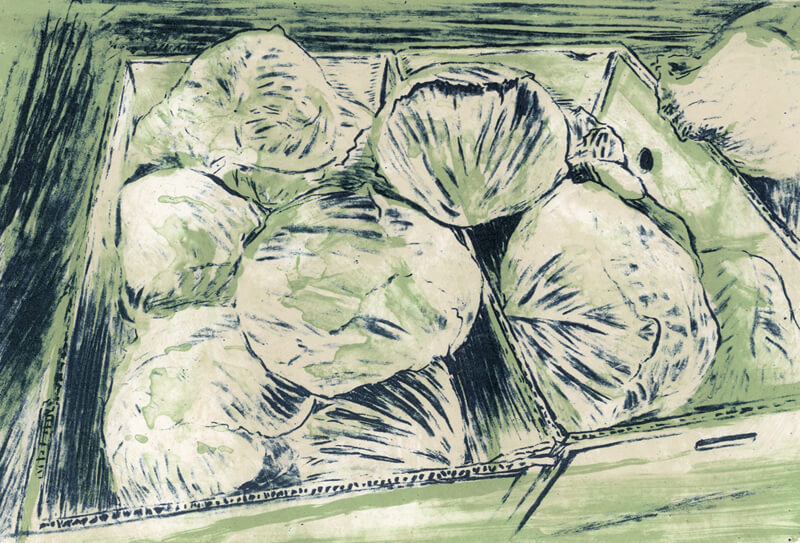Within South Africa, Dipula has a diverse property portfolio valued at R9.8 billion. This currently comprises 166 properties (owned and managed) primarily in the retail sector, followed in order by office, industrial and residential (charted below). A significant portion of its holdings are in Gauteng, one of the country’s most economically active regions. Dipula’s in-depth understanding of the local property market enables them to identify and respond to market trends effectively, positioning them advantageously to capitalise on emerging opportunities.

Expansion to optimisation
Dipula’s portfolio has evolved through acquisitions and disposals, with assets growing from R2 billion to R9 billion in value over the past decade (left chart below). Non-core assets that no longer meet potential size and growth criteria are disposed of. This emphasises a strategic focus on improving the quality and average value of its property assets, which has increased from R13.6 million to R56 million over the same period. Additionally, gross rentals across the portfolio have grown at an annual rate of 8% during this time, highlighting Dipula’s acumen for propelling income growth across the retail, office and industrial property sectors.
Focusing on the geographic proximity of properties in the portfolio provides the business with various benefits, including:
• agility in market response, enabling swift reaction and adaptation to market changes;
• optimising the tenant mix to suit regional needs; and
• tailoring property management strategies to effectively address local needs.
Gezina Galleries, a 17 000 m² community mall in Pretoria, is a prime example of the success of this approach. Dipula identified the younger government-employed demographic with disposable income for convenience shopping, then repositioned the mall’s offerings to cater directly to this. By introducing popular apparel stores, beauty salons and fast-food outlets, the tenant mix was aligned with evolving consumer preferences to retain the mall’s relevance amid changing consumer patterns. This has contributed to a significant increase in rentals and property valuations over the past decade and showcases Dipula’s proactive management and foresight in adapting retail properties based on understanding market trends and tenant needs.
When Dipula listed on the JSE in 2011, their portfolio of retail property assets (right chart below) contained a higher percentage of smaller (less than 2 000 m²) single-tenant facilities facing various individual operational challenges – shown by high vacancy rates. Dipula has since shifted focus to:
• gradually rebalance its portfolio to reduce exposure to these types of properties; and
• invest in more sustainably higher-yielding assets like their community centres, which typically house between five and 25 tenants – fostering a more diversified tenant mix.

Leaning into retail
Much of the success of Dipula’s portfolio optimisation strategy has hinged on the decision to focus on properties in under-serviced areas, for example Soweto and Hammanskraal, where residents rely on public transport to access essential goods. By concentrating on rural, urban and township community malls that serve the everyday needs of the surrounding communities, Dipula’s portfolio of retail assets are integral parts of the local economy.
Community-focused shopping malls draw consumers and retailers alike because of their accessible locations in densely populated areas, acting as a hub for sustainable spending, with reduced transportation costs for consumers. Operating in areas where people receive state income subsidies ensures a resilient demand base for their tenants’ shops.
The functional format of these community malls, prioritising convenience and access, calls for lower overall capital expenditure and maintenance costs for the properties compared with those of larger, more design-centric shopping malls.
An anchor tenant (usually a grocer) draws consistent foot traffic, further supported by a well-considered tenant mix that typically includes ATMs, fast food outlets and essential services like clinics, beauty salons and internet cafés. This creates strong trading density, reflecting the mall’s ability to generate revenue. Unlike larger malls that often feature underperforming department stores, Dipula’s community malls have shown turnover growth rates that surpass those of regional malls, highlighting a sustainable business model that benefits tenants and the surrounding community.
E-commerce penetration in rural and township areas is low and unlikely to expand materially in future due to the practical difficulties of serving these markets, therefore posing a low threat to retail trading in Dipula’s retail assets. Furthermore, retailers seeking to expand and open new stores are increasingly drawn to these underserved markets. Dipula should stand to capitalise on this growing demand by increasing rental rates from their low base (relative to sales of their tenants).
Security in sustainability
Dipula’s retail portfolio sustainability has been effectively managed through:
• ensuring a steady stream of income from established national retailers who occupy 85% of their retail properties; and
• prioritising support for the communities they serve. This is achieved by strategically allocating space to small, medium and micro enterprises – diversifying the tenant base and bolstering local economies. It is exemplified by their provision of rent-free, fully-serviced hawker stalls in some community malls, aimed at nurturing local entrepreneurship.
The synergy between fostering community growth and ensuring economic viability is evident in Dipula’s consistent net property income yield of 9%, which remains robust despite the escalating utility and municipal costs that challenge profitability in the sector. Achieving this balance shows proficiency in managing operational costs and sustaining healthy operating margins.
Evolution in the rest of the portfolio
Dipula’s office portfolio, which constitutes 20% of total assets, is primarily occupied by government tenants. A significant number of these leases were recently adjusted downwards to reflect current market rates, with extended longer duration terms. While longer duration contracts ensure greater income stability, this has resulted in lower rental income compared to the preceding short-term, month-to-month leases. The expectation is, however, that future rental income will grow steadily from this base, given the extended lease terms. Notably, government tenants represent a stable occupancy profile with low turnover rates because of the long-term nature of their employment commitments.
Dipula carefully evaluates whether non-core assets should be sold or repurposed to unlock value. In 2018, the company converted two office buildings into residential units in Johannesburg and Midrand, capitalising on their proximity to public transport and retail amenities. The project was successful and marked a strategic shift for the business that continued in 2019, with the development of an apartment complex and the acquisition of additional units in Johannesburg – further strengthening Dipula’s residential portfolio. By offering affordable one-bedroom apartments at an average rent of R5 000 per month, Dipula effectively caters to the growing demand for rental housing amid affordability challenges in homeownership.
In the industrial sector, the combination of strong demand for space and limited supply has reinforced market growth. Dipula’s industrial properties make up 14% of the portfolio, with notable performance in their mid-sized properties – evidenced by low vacancy rates (around 4%) and steady rental growth.
Long-term growth
Over the past decade, Dipula’s property investments have consistently delivered an average return on invested capital surpassing most industry peers. Furthermore, with a loan-to-value ratio of 35% – well below industry norms – Dipula’s conservative use of debt means financial resilience, strengthening its platform for growth. As interest rates are reduced by the SARB, property companies stand to benefit from a less restrictive interest rate environment. Dipula’s recent debt syndication and prudent financial strategy demonstrates proactive debt management capabilities, allowing the company to capitalise on improved cash flows in this more favourable climate.
Additionally, its R200 million portfolio revamps, including R50 million investment in solar projects and non-core asset disposal efforts, highlight a commitment to operational efficiency and sustainable growth.
With these initiatives and financial strategies in place, Dipula is poised to optimise its portfolio and navigate market changes. Proven ability to adapt to industry-specific challenges and efficiently manage capital, signals a strong outlook for continued, resilient long-term returns – reinforcing confidence in sustained value creation for Dipula shareholders.




